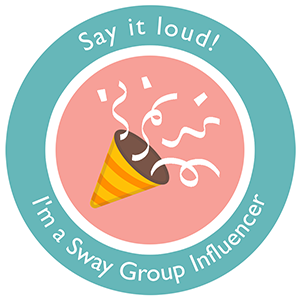Disclosure
Affiliate links are used in this post. You can read my full disclosure here.
I hesitated to share these tips before as I believe that if you think you have a problem, you should seek medical help and not rely on advice on the internet. However, I also feel that some people have anxiety and may not realize it.
I am sharing this information in hopes that if any of these strongly resonate with you that you do seek out a medical professional. Also, keep in mind, what worked for me, may not work for you. There are many levels of anxiety and many different types of anxiety. Sometimes medication is necessary and just changing your thought process may not work.
Common Mindtraps Associated With Anxiety
Catastrophising
This is when you make a situation worse than it actually is. You imagine the worst possible outcome and are constantly thinking "what if."
This can be in the present moment. For example, your child is climbing up the ladder to go down the slide, and the whole time you are thinking: "what if he falls?" "what if he breaks an arm?" "what if he dies?" when the reality is they design playground equipment so it is safe for kids and he has probably done the same thing many times before without a problem, so the chance of him falling is very low.
Or this could be worrying about the future. For example, your kid failed a test and suddenly your thinking "what if he never gets into college?" "If he doesn't go to college, he won't get a job" "If he doesn't get a job, then what?" When the reality is it is just one test and he can make up for it, maybe he just needs a little extra help.
This was something I struggled with and I still do, but I am now able to catch myself when it happens. Just noticing when you are beginning to "what if" can help counter the anxiety. Another tip is to grab a piece of paper and start writing down all your fears, then you can physically look at them and realize that you are worrying too much. Sometimes just hearing myself say it out loud makes me realize how ridiculous I am being. I highly recommend you talk to your therapist about your "what ifs" and they can help you work around them.
Polarised (Black and White) Thinking
Sometimes also known as "All or Nothing" thinking. This is when you believe there are only right or wrong outcomes. Either something is really good or really bad, there is no "gray" or in-between area. For example, you entered a race and got second place, which is still great, but since it is not first, you see it as failing.
This kind of thinking affected me more so growing up as I had the classic "Tiger Mom" who wanted straight As and if we didn't get that, there was a lot of verbal abuse, so even seeing a B made me feel worthless and not good enough, getting a C was basically failing.
Just graduating from college and no longer living with my parents helped me overcome this thinking, as those were what caused my anxiety. If you, however, find yourself thinking this way, take the time to make a chart, write the good thing on one side and the bad thing on the other, then force yourself to find something you can put in between. This will help you realize that there are a lot of "levels" between black and white. You could even get out a crayon box and pick out all the shades of white, gray, and black as a visual. Talk to your therapist if you feel you can't find the "gray" area and they can help. Also, if you can, remove the people or things in your life that are causing you to think this way. You don't need that negativity in your life.
Filtering
This is when you focus on all the negatives in a situation while filtering out the positives. For example, you and your husband are preparing for a date night and all is going well. You're having your wine and salad, then you smell something burning. The chicken is ruined. Suddenly your perfect night becomes awful as you focus on the burnt chicken. You forget about the lovely conversation you were having, and the whole night is about how the chicken was ruined.Tips to help with filtering or tunnel vision is to stop and try and find at least one positive in the situation. Sure the chicken is ruined, but the time with your spouse was still great and the most important part right? If you make everything negative, then, of course, you are going to have negative feelings. Once you find the positive, you can laugh it off, and find another solution or let it go. If you have difficulty finding a positive to a situation, talk to your therapist.
Personalization
This is when you basically blame yourself or believe everything someone else says or does is a reaction to you. You frequently compare yourself to others. If you think you are better than someone, you feel relieved, but if you don't, you feel worthless.When this happens, write down what you feel is your fault, and look for external factors. For example, instead of thinking you are at fault for your child's bad grade because you didn't make them study harder, consider that maybe your child was just having a bad day or maybe the subject is just a little too hard and he may need some extra help, or maybe the questions on the test were poorly written. You still may be at fault in some situations, but it is not solely your fault.
As for comparing yourself, this can be tough as a society this is all we do. I see it a lot as a mom now, parents comparing themselves to other parents, moms judgings moms, etc. Talk to your therapist if you need help overcoming these feelings.
Overgeneralization
This is the belief that if something happens once it will happen again. Words often used in this kind of thinking are "all," "always," "never," and "every." For example, you asked your husband to take out the garbage for the fifth time today and he didn't. You react by thinking or even voicing: "You never do anything" or "I always have to do it." This leaves you feeling frustrated, helpless, annoyed, etc.
Not only does this kind of thinking hurt you, but it hurts the person whom your anxiety is directed at. It may be hard in the moment to stop and think about which words to use, so instead think of a moment where you thought this way and evaluate it: "Yes, my husband didn't take out the garbage today, but he does do other things. He mowed the grass yesterday." This helps you stay positive and remember to apologize for your overreaction. It is okay to let him know it annoyed you that he didn't do it right when you asked, but it is not okay for you to say "you never help" when that is not true and only puts him down.
Jumping to Conclusions (Mindreading)
This is when you make your own assumptions as to how someone is acting the way they do towards you. For example, your friend said she would meet you for dinner, but then she didn't show up. You automatically jump to the conclusion that she is mad at you and doesn't want to be your friend anymore.
Jumping to these conclusions often happens because you feel poorly about yourself ("Who would want to be friends with someone like me?"). The truth is your friend may have just been sick and forgot to call, or maybe she was in an accident.
Another form of jumping to conclusions is believing something will happen when it has never happened before (overprediction). For example, you have to give a public speech, something you have never done before, and you think: "I can't go up there, I'll faint!" You have never done it before, so you can't possibly know that you are going to faint, but you believe you will anyway.
This is one of those where I think you have to catch yourself in the moment and realize you are making conclusions when you have no hard evidence. This one can also be short-lived as you may think your friend is angry at you, but then later that night she calls and lets you know that her dog got loose and she spent the whole day looking for him. Your anxiety goes away, but you basically wasted the whole day worrying about nothing.
This is the worst mindtrap, in my opinion, because it is hard to get anything done when you are anxious, and then when you find out the real reason, you are mad at yourself for being worried over nothing. I often catch myself saying "I should've..." I still struggle with this one, but I am getting better at redirecting my thoughts. Like with all of these, it got easier once I realized what I was doing. Again, these may not work for you. Please talk to a medical professional if you need help.
Attribution Error
This is when you believe you know the reason why a person behaves the way they do when their actions may or may not be deliberate. For example, your child is hitting you, so you think "my child hates me." In this case, you are focusing on the behavior and giving it a negative attribute instead of considering what may have caused that behavior. The reality is your child does not hate you. He just has a hard time communicating and shows his frustration by hitting you. He just wants a snack but doesn't know how to ask.
Another form of this thinking is when you give yourself negative attributes. For example, someone gives you a compliment, but instead, you think "They are just saying that. They don't mean it." You basically just turned what should have been a positive thing into a negative thing. This also gives the person who gave you a compliment a negative attribute. You turned their kindness into spite.
You can try and counter these thoughts by asking "What may have caused that behavior or reaction?" or "What evidence is there to make me think this?" Sometimes this can be difficult as you can't always know what the cause is, especially with young kids, but try and make an effort to look for unseen causes instead of coming up with your own conclusion. If you struggle with this, talk to your therapist.
Shoulding and Musting
This is when you often think "I should," "I shouldn't," "I must," etc. You put unreasonable demands or unrealistic expectations on yourself and others.
This is the one I am most guilty of and it was the main reason I sought help after having my daughter. I constantly found myself thinking "I shouldn't feel this way, a good mom wouldn't feel this way" or "I shouldn't get angry. I shouldn't be mad."
I struggle with the anger emotion as my mom was not good at controlling hers and it scared me growing up, and still causes my anxiety to spike to this day. I had a hard time expressing anger growing up for that reason and often kept feelings bottled up, but eventually, I would reach a tipping point. The problem was because I had no good role model for expressing anger when it did come out, it wasn't always the best way. This frustrated my husband and he would often say "If you had just told me..."
My therapist helped me realize that it is okay to feel angry, to feel upset, everyone gets angry, it's a normal emotion. It is how we act on that anger that matters.
I still struggle with this and probably always will, but I have gotten a lot better at just letting my husband know when I am upset. I have also gotten better at managing my anxiety by reminding myself that everyone gets angry.
I still struggle with this and probably always will, but I have gotten a lot better at just letting my husband know when I am upset. I have also gotten better at managing my anxiety by reminding myself that everyone gets angry.
None of the tips I provided are "cure-alls." They are just ways to help manage your anxiety, a way for you to control it so it doesn't control you. Again, if you are struggling with any of these, please seek help from a medical professional.
Bonus Resource
The Centre for Clinical Interventions (CCI) actually has some really good activity worksheets that go over these mind traps and more, which you can check out here.



















